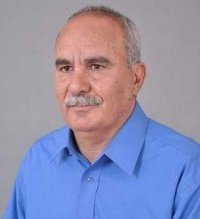Yemen: The Black Sheep of the Middle East?
Written By: Raghad Al Saadi
From: Stability Operations Magazine
[su_dropcap]I[/su_dropcap]n light of the paralyzing global health pandemic of COVID-19 the best WPS strategy would appear to be curative. Whereas the crisis curve is easing in some parts of the world, it has grown in others such as Yemen. The humanitarian and stabilization operations have been impacted by the public health crisis. Therefore, the conflict in Yemen must be re-examined holistically in order to effectively respond to the pandemics of disease and instabilities all together. This article points to conflict-related factors that devastated the health sector in Yemen, and the role of the women’s civil society organizations (WCSOs) to respond.First, the economic factor: on Friday April 10, 2020 Hadramout province reported the first case of COVID-19 in the country. The Port of Hadramout was the only operational one for commercial vessels in Yemen allowing imports of food, medical supplies and other essential goods. The other major ports (Aden and Hodeidah) were closed because of the conflict, interrupting the supply chain of essentials. The Yemeni people were suffering from famine already, prior to the COVID-19 influx.
The Sana Foundation for Development (SFD) is a civil society organization in Aden. Founder Sana Al Muqbily described the ugly truth in regards to the primitive health system and the poor economy. Poverty and a lack of job opportunities make it impossible to afford medical treatment. Most of the people are malnourished, especially the children making them especially susceptible to various fatal diseases. The WCSOs, including SFD, raised funds from private donations to distribute food for people in need in their districts during the lockdown. The level of poverty and hunger is well beyond the food baskets provided by King Salman Humanitarian Aid and Relief Centre. Cash assistance from the World Food Program is like a band aid on a ruptured artery. The WCSOs in Aden have the capability to access and assess the needs of households, and evaluate the risks and impact on women and children, individuals with disabilities and also help mobilize the youth. Access is vital for WPS and the Global Fragility Act (GFA) implementation in conflict areas. WCSOs need to be empowered to engage with local authorities, and equipped to play a greater role in serving their local communities.
The second element in Yemen is the collapsed health system. Ms. Muqbily indicated that the Yemeni health system is nearly non-existent because of the conflict. Hospitals and clinics lack the most basic medical supplies and the number of the medical staff is very limited. After the announcement of the first COVID-19 case, Ms. Muqbily said that the international community provided “body wraps” for deceased bodies before they provided personal protection equipment to medical staffer and volunteers. Yemen has only about 150 ICU beds in a country of a roughly thirty million people. The divided government has not provided guidance to the nation about this development. In addition, multiple local WCSOs have spoken about various fatal diseases with similar symptoms to COVID-19. A significant number of deaths has been documented by WCSOs, but the government(s), and local governance entities have done nothing. The WCSOs stepped up to communicate with people and share information about the necessary precautions and hand washing. Unfortunately, the lack of reliable internet and other infrastructure weaknesses have made spreading the message to a larger audience challenging. Sadly, people rarely have enough clean water to drink, let alone to thoroughly wash their hands.
Finally, poor security and inadequate protection measures cause the loss of many lives in Aden, not to mention the immense property damage. Aden is a historical city located at the bottom of several valleys, making it vulnerable to floods and landslides from the surrounding mountains. The ancient civilization that built the city mitigated the risks of floods by establishing seven avenues that allow floods to smoothly flush out to the sea without impacting the urban settings. Unfortunately, authorities and contractors have disregarded the ancient wisdom and have not consulted with local CSOs and local communities before they installed concrete barriers in these flood stream avenues. This measure blocked and trapped the floods in the city, erupted the sewage system and turned the natural flood phenomena into a natural disaster in April. The spilled sewage soon became an ideal environment for all types of bacteria and deceases. People are under a lockdown order, unhealthy, terrified of the pandemic mortality rates and domestic violence. Under these circumstances, a failed state combined with the COVID-19 pandemic, the Yemen peace talks and the emergency response should be expedited. In the meantime, the WPS and GFA initiatives should be implemented as a bottom-up approach bringing localized solutions to localized challenges. This would create a system that allows for the Yemeni CSOs and local governments to fully cooperate for the public good.








